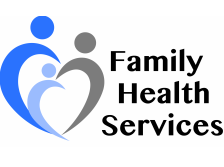Diabetes News – March 2022
MARCH IS NATIONAL KIDNEY MONTH
Diabetic kidney disease is a type of kidney disease caused by diabetes. Diabetes is the leading cause of kidney disease. About 1 out of 4 adults with diabetes has kidney disease. The main job of the kidneys is to filter wastes and extra water out of your blood to make urine. Your kidneys also help control blood pressure and make hormones that your body needs to stay healthy.
With diabetes, the small blood vessels in the body are injured. When the blood vessels in the kidneys are injured, your kidneys cannot clean your blood properly. Your body will retain more water and salt than it should, which can result in weight gain and ankle swelling. You may have protein in your urine. Also, waste materials will build up in your blood.
Diabetes also may cause damage to nerves in your body. This can cause difficulty in emptying your bladder. The pressure resulting from your full bladder can back up and injure the kidneys. Also, if urine remains in your bladder for a long time, you can develop an infection from the rapid growth of bacteria in urine that has a high sugar level.
Kidney damage from diabetes can get worse over time. However, you can take steps to keep your kidneys healthy and help slow kidney damage to prevent or delay kidney failure. Kidney failure means that your kidneys have lost most of their ability to function—less than 15 percent of normal kidney function. However, most people with diabetes and kidney disease don’t end up with kidney failure.
Healthy lifestyle habits can help you reach your blood glucose and blood pressure goals. Following the steps below will also help you keep your kidneys healthy:
- Stop smoking.
- Make physical activity part of your routine.
- Stay at or get to a healthy weight.
- Get enough sleep. Aim for 7 to 8 hours of sleep each night.
- Take medicines as prescribed
Work with a dietitian to develop a diabetes meal plan and limit salt and sodium.
The Diet-Betus – our version of recipe of the month just with a healthier tweak
Bring some Luck of the Irish into your home with this tasty recipe.
Irish Lamb (or Beef) Stew
Ingredients
- 1-1/2 pounds boneless lamb shoulder
- 1/2 teaspoon salt
- 1/2 teaspoon black pepper
- 1 tablespoon olive oil
- 1 medium onion
- 1/4 cup all-purpose flour
- 3 garlic cloves
- 1 teaspoon dried thyme
- 1/2 cup tomato sauce
- 1 cup stout beer
- 2 cups low-sodium beef broth
- 2 medium carrots
- 2 medium parsnips
- 1 cup frozen peas
Preparation
- Trim excess fat and cut the lamb into 1-1/2 chunks. Chop the onion and garlic.
- Place the lamb pieces on a plate and sprinkle with the salt and pepper. Place flour in a zip top bag. Add lamb and shake to coat meat evenly.
- Heat 1 tablespoon of the olive oil over medium heat in a large stockpot or Dutch oven. Add lamb and cook until evenly browned. Remove from the pot and set aside.
- Add the onion to the same pot and sauté until translucent. Add chopped garlic and stir for 1 minute. Add 1/2 cup beef broth and stir to deglaze the pot.
- Add lamb, beef broth, beer, tomato sauce and thyme to the pot. Bring to a boil, then cover and reduce to low heat. Simmer for 1 hour.
- Peel and cut carrots and parsnips into 1-inch pieces. Stir vegetables into stew, cover and simmer for 30 minutes. Add green peas and cook 5 to 10 minutes.
Helpful hints
Cook longer if you like very soft cooked vegetable.
Buy 2-1/2 pounds lamb shoulder chops and trim fat and bones if boneless lamb shoulder is unavailable. Substitute 1-1/2 pounds beef stew meat for lamb if desired.
Replacing traditional potatoes with parsnips helps reduce potassium content.
For a lower protein diet reduce lamb to 3/4 pound. Protein is reduced to 15 grams.
Source: DaVita dietitian Sara from California.
Community offerings: *
* Due to coronavirus/COVID 19, many community offerings have been changed, postponed, or canceled.
Please call the number listed for the event to verify availability, dates, and times.
If you have questions regarding Coronavirus/COVID-19 please call 1-833-4-ASK-ODH (1-833-427-5634)Or, go to https://www.cdc.gov/coronavirus/2019-nCoV/index.html or https://coronavirus.ohio.gov/wps/portal/gov/covid-19/.
Diabetes Empowerment Education Program (DEEP)
COST:
Free
CONTACT:
Tina Ellinger 419-624-1856
The Diabetes Empowerment Education Program [DEEP] is offered every Wednesday for six weeks. Good attendance is important. This free program is for diabetics, pre-diabetics, and spouses or caregivers of a diabetic. Residents of Erie County, aged 60 or older, please call 419-624-1856 to register.
Diabetes Support Group – Firelands Regional Medical Center
The Diabetes Support Group presented by Jean Feick CNP, CDE, meets the third Wednesday of each month Sept–November and January-May from 12:00pm –1:00pm. This meeting is free to the public and no registration is required. Attendees are welcome to purchase lunch in the hospital cafeteria and come to the adjacent Cafeteria Meeting #1. A different topic will be reviewed each month. If you have questions, please contact the Diabetes Education Department at 419-557-6992.
HEALTH & WELLNESS SCREENING – offered by Firelands Regional Medical Center
You must Pre-register for all Lab Work at 419-557-7840.
Sandusky Health & Wellness
Firelands Sandusky HealthCare Center
2520 Columbus Ave.
Sandusky, OH 44870
Saturday, March 12
7:00 am to 9:30 pm
Firelands Sandusky HealthCare Center
2520 Columbus Ave.
Sandusky, OH 44870
Saturday, April 9
7:00 am to 9:30 pm
Firelands Sandusky HealthCare Center
2520 Columbus Ave.
Sandusky, OH 44870
Saturday, May 14
7:00 am to 9:30 pm
Firelands Sandusky HealthCare Center
2520 Columbus Ave.
Sandusky, OH 44870
Saturday, June 4
7:00 am to 9:30 pm
Health & Wellness Screenings include:
- Complete Blood Count with Metabolic & Lipid Panel (No Eating or Drinking for 12 Hours – Water Allowed – includes liver and kidney function studies, fasting blood sugar, thyroid, cholesterol, HDL/LDL, and triglyceride levels along with a complete blood count.) – $45.
- Hemoglobin A1C (A three-month report card on how well your blood sugars have been running. A test used to diagnose diabetes and/or to evaluate how well your treatment plan is working.) – $25.
- PSA (Prostate Specific Antigen)- $30.
- Vitamin D – $35.
- TSH – $25
Please comply with the following COVID-19 precautions:
- Wear a mask
- Have your temperature taken upon arrival
- Follow social distancing practices
Please note
- Patients will not be allowed to enter until their scheduled time
- Walk-ins will not be accepted
- Only the registered patient will be allowed to enter the screening unless the patient needs assistance from an accompanying person
- We are unable to perform any additional physician-ordered tests not included in the list above.
Contact: Centralized Scheduling at 419-557-7840 to pre-register
The A1C test—also known as the hemoglobin A1C or HbA1c test—is a simple blood test that measures your average blood sugar levels over the past 3 months. It’s one of the commonly used tests to diagnose prediabetes and diabetes, and is also the main test to help you and your health care team manage your diabetes. Higher A1C levels are linked to diabetes complications, so reaching and maintaining your individual A1C goal is really important if you have diabetes.
Last quarter, 72% of our diabetic patients had an A1C of less than 9%. Talk with your provider to discuss the right options for you.



